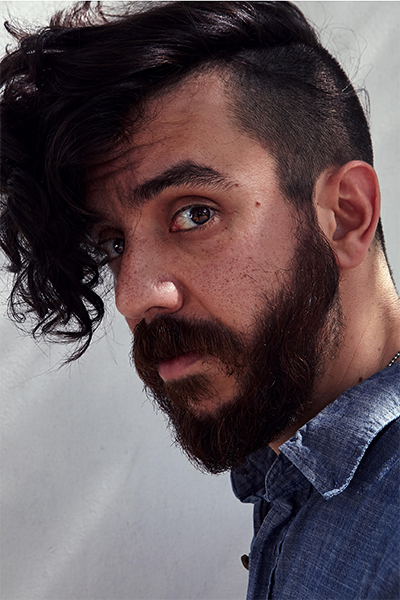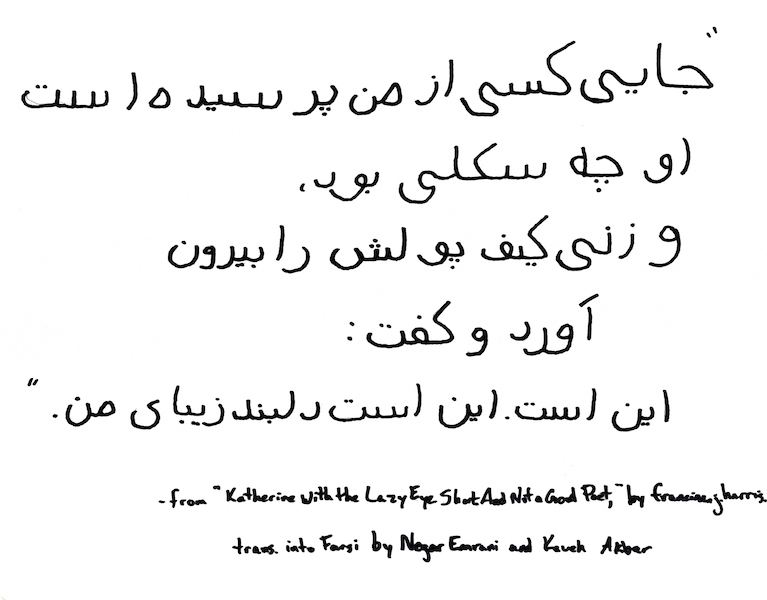I first read francine j. harris’s “katherine with the lazy eye. short. and not a good poet.” sometime late in my undergrad, I think. I was still in the era of my poethood where I was showing up a drunken sloppy mess to read my crappy poems at provincial Midwestern open mics. When I found harris’s poem, I saw myself, I saw the midwest I knew, I saw my own disregard for the interiority of others, I saw my own sloppiness. It’s a poem that performs its own searching, too—you hear the speaker reworking their language, endlessly reprocessing their positions and complicities. I’ve read a million poems, but this was the first time I really felt a poem reading me.
The Poems of Others
What Sparks Poetry is a serialized feature in which we invite poets to explore experiences and ideas that spark new poems.
In the series The Poems of Others, we’ve invited poets to pay homage to a poem that first sparked poetry in them—a poem they read that gave them permission to write poetry or the idea that they might write it—a poem that led them down the path to becoming a poet.
Kaveh Akbar on francine j. harris’s “katherine with the lazy eye. short. and not a good poet.”
Writing Prompt
Write a poem examining your relationship to a person whose interiority you didn’t fully appreciate when you had the chance. Include a repeated phrase that changes slightly with each repetition.
— Kaveh Akbar
Share This Post
Print This Post

Kaveh Akbar
Kaveh Akbar’s poems appear in The New Yorker, Poetry, The New Republic, Best American Poetry, The New York Times, and elsewhere. His first book, Calling a Wolf a Wolf, was published by Alice James Books in the U.S. and Penguin in the U.K. He is also the author of a chapbook, Portrait of the Alcoholic, published by Sibling Rivalry. The recipient of the Levis Reading Prize, a Pushcart Prize, and a Ruth Lilly and Dorothy Sargent Rosenberg Poetry Fellowship, Kaveh is the founder of Divedapper, a home for interviews with major voices in contemporary poetry. Born in Tehran, Iran, he teaches at Purdue University and in the low-residency MFA programs at Randolph College and Warren Wilson. More at http://kavehakbar.com/.



